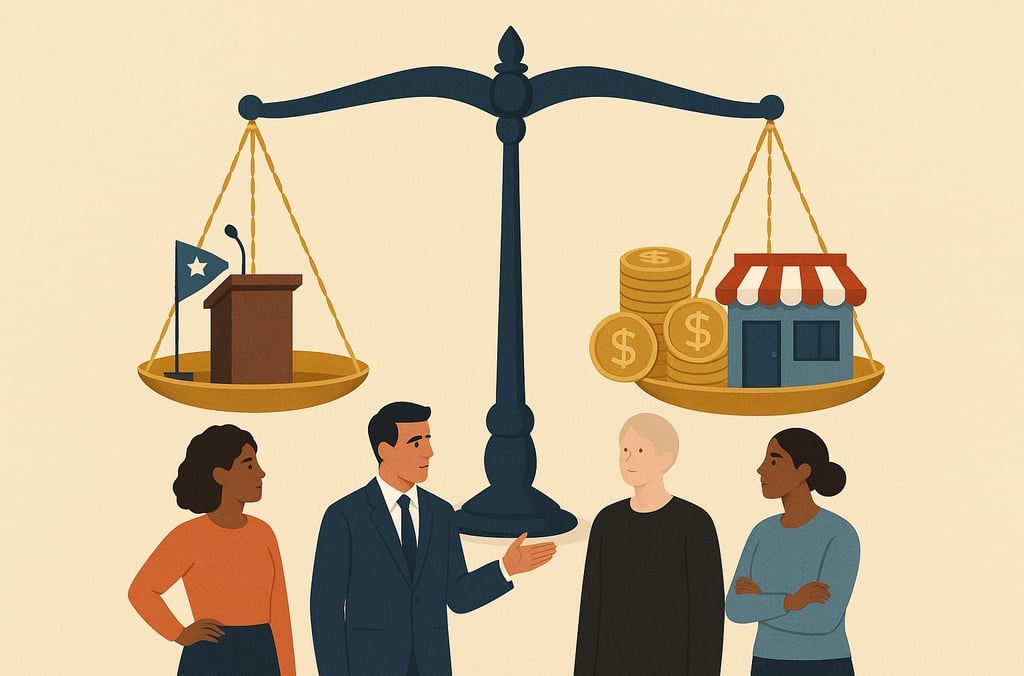Who Are Those We Call "Responsible" (مسؤول) in the Community?
8/12/20252 min read


We often think of a “responsible” person as someone who holds political or religious authority, someone who is publicly accountable to their community. This common view places responsibility within the formal structures of leadership and power. Yet in reality, the notion of being "responsible" is far more complex. It includes not only those who occupy official positions of power, but also all those whose actions have a significant impact on their community.
A political leader, by virtue of their role, carries out duties and exercises authority that directly affect the lives of others. This is widely understood and generally accepted. Similarly, religious figures who guide the moral and spiritual life of the community are also seen as holding a position of responsibility. But if we accept that responsibility is linked to the impact one has on others, then this logic should naturally extend beyond the political and religious spheres.
There is no coherent reason why an entrepreneur, business owner, or investor who shapes the social and economic landscape of a city should be exempt from this same responsibility. Such individuals often benefit from a degree of freedom and influence that surpasses that of an average citizen. In many cases, their financial power grants them the ability to alter their environment in ways that affect large numbers of people. If they are not held accountable, what we face is a form of social anarchy where individual freedom takes precedence over the collective good. This state of affairs contributes to widening inequalities, both in terms of wealth and power.
Those who invest in a neighborhood, open a business, or operate a company are, by definition, engaging in actions that shape the lives of others. The responsibility they carry grows even greater when their ventures produce consequences beyond their intended goals. For entrepreneurs, the primary aim is often profit, but the effects of their activity cannot be reduced to the financial realm alone. When a business generates disturbances or disrupts the social balance of a community, those consequences must be taken seriously.
We cannot hide behind the idea that everyone has the right to build a livelihood for themselves and their family in order to excuse actions that harm public tranquility. In Ankawa, for example, I have often raised concerns about the establishment of immoral venues in residential neighborhoods. The usual reply is that this is how some people earn a living, and that we should not interfere with their means of survival. But while earning a living is a legitimate and even noble pursuit, it must never come at the expense of those around us.
Many entrepreneurs understand this well. Some have embraced corporate social responsibility because they recognize the broader impact of their actions on the communities they serve. Others, however, display complete disregard for the well-being of their fellow citizens. Focused only on personal gain, they pursue ventures that may be profitable, but that degrade the lives of those around them. This is not only a moral failure but a failure of citizenship.
We must therefore broaden our understanding of what it means to be "responsible." Accountability to one's community should not be limited to politicians or religious figures. It is time we consider the entrepreneur, the hotel manager, and the operator of entertainment venues as responsible actors within society. If you hold the capacity to cause harm, then you are also obliged to listen to the voice of the people and act in the public interest. This is not a suggestion or a courtesy. It is a duty.
